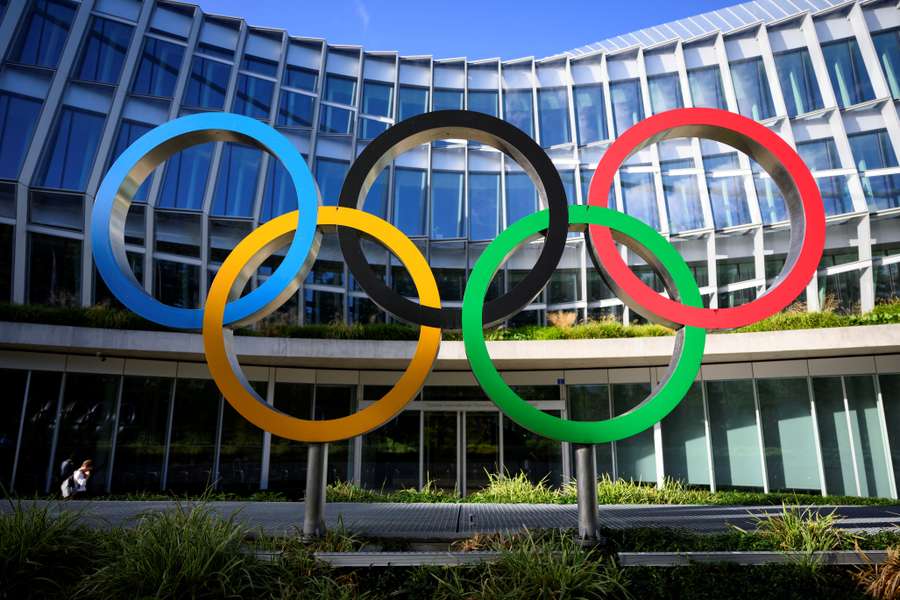Australia aligned with other nations on Russia, Belarus athlete ban at Olympics

The British government issued the joint statement on Monday on behalf of "more than 30 like-minded nations", which held a summit addressed by Ukraine President Volodymyr Zelenskiy this month.
Australia was a signatory to two statements on the matter which were agreed upon by "35 like-minded nations" last year but was the only one of those countries not represented in Monday's new pledge.
A spokesman for the Australian Sports Ministry told Reuters that Australia's absence was an administrative error and that the government was in accord with the sentiments expressed in the statement.
The statement followed the IOC's recent proposal to develop a pathway for athletes from Russia and its ally Belarus to compete at next year's Paris Olympics as neutral athletes despite the ongoing war in Ukraine.
"We have strong concerns on how feasible it is for Russian and Belarusian Olympic athletes to compete as 'neutrals' ... when they are directly funded and supported by their states," the statement said.
"The strong links and affiliations between Russian athletes and the Russian military are also of clear concern.
"As long as these fundamental issues and the substantial lack of clarity and concrete detail on a workable 'neutrality' model are not addressed, we do not agree that Russian and Belarusian athletes should be allowed back into competition."
The International Olympic Committee said it would take into consideration the questions raised by those countries in their statement but repeated its position that human rights concerns for Russian and Belarusian athletes needed to be addressed.
"The International Olympic Committee takes note of the statement by ministerial and senior representatives from 'a collective group of nations'," it said in a statement on Tuesday.
"The IOC appreciates the constructive questions with regard to the definition of the neutrality of athletes with a Russian or Belarusian passport while noting that the explicit human rights concerns expressed by two special rapporteurs of the United Nations Human Rights Council have not been addressed in the statement."
UNACCEPTABLE INTERFERENCE
Russian Sports Minister Oleg Matytsin said on February 11th that calls from other countries to ban Russian and Belarusian athletes from the Olympics were an "unacceptable" interference in the activities of independent sports bodies.
Russian track and field athletes have been able to compete at the last two Summer Olympics as Authorised Neutral Athletes after the Russian Athletics Federation was banned by World Athletics for systematic doping in 2015.
Other international sports federations have allowed Russian and Belarusian athletes to compete on a similar basis since last year's invasion of Ukraine.
Ukraine has threatened to boycott the Paris Games if Russian and Belarusian athletes compete.
The IOC is fearful of a return to the days of the Cold War when a series of boycotts of the Olympic Games threatened the existence of the movement.
The two statements by the 35 nations last year called for a ban on all Russian and Belarusian athletes from international competition.
The second also laid out conditions which such athletes should meet if sports federations allowed them to compete, including bans on flags and anthems as well as any public statements of support for the war.
"We also note that Russia and Belarus have it in their own hands to pave the way for their athletes' full return to the international sports community, namely by ending the war they started," Monday's statement concluded.
